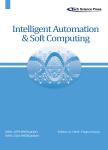An Optimal Framework for Alzheimer’s Disease Diagnosis
作者机构:Biomedical Engineering DepartmentSchool of Applied Medical SciencesGerman Jordanian UniversityAmman11180Jordan Department of Electrical EngineeringFaculty of EngineeringThe Hashemite UniversityZarqa13133Jordan
出 版 物:《Intelligent Automation & Soft Computing》 (智能自动化与软计算(英文))
年 卷 期:2023年第37卷第7期
页 面:165-177页
核心收录:
学科分类:1002[医学-临床医学] 081203[工学-计算机应用技术] 08[工学] 100203[医学-老年医学] 0835[工学-软件工程] 10[医学] 0812[工学-计算机科学与技术(可授工学、理学学位)]
主 题:Biomedical engineering healthcare machine learning cognition
摘 要:Alzheimer’s disease(AD)is a kind of progressive dementia that is frequently accompanied by brain *** the use of the morpho-logical characteristics of MRI brain scans,this paper proposed a method for diagnosing moderate cognitive impairment(MCI)and *** anatom-ical features of 818 subjects were calculated using the FreeSurfer software,and the data were taken from the ADNI *** features were first removed from the dataset after being preprocessed with an age correction algorithm using linear regression to estimate the effects of normal *** these preprocessed characteristics,the extreme learning machine served as a classifier for the diagnosis of AD and *** determining accuracy,sensitivity,specificity,and area under the curve,ten-fold cross validation was *** accuracy of AD diagnosis was 87.62 percent on average after 100 runs,while the area under curve was 94.25 *** sensitivity of the MCI diagnosis was 83.88 percent,while the accuracy was 73.38 *** age correction can help diagnose MCI more *** outcomes showed that the proposed strategy for diagnosing AD and MCI was more effective than existing methods.



